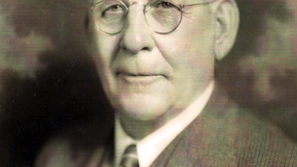Texas transplant didn’t mess up
- Bill Coate
- Apr 3, 2021
- 4 min read

For The Madera Tribune
Dr. Albert Wilburn.
The black farmer strode to the fence that separated his 170-acre farm from his white neighbor’s farm in Northeast Texas. It was 1950, and the black farmer had had enough of life in the Lone Star State.
As an African-American, his children were allowed to go only to one school, and it had just eight grades. He and his family had repeatedly been denied some of the everyday amenities of life: a drink from the water fountain in the park; the use of its restrooms; a day in the public library; and now this. His neighbor had been harassing him by cutting the fence at night and letting his cows loose. Grady Wilburn wasn’t going to take it anymore.
When he got to the fence that day, he began to dig with the shovel he carried with him. He worked a couple of hours and finally he had what he wanted, a hole the size of which would contain a man’s body. He looked at the pile of dirt, stuck the shovel in the mound of earth and called for his neighbor. Upon the white man’s approach, the black man explained the hole.
“This will be your grave the next time you cut my fence and let my cattle out,” said Wilburn.
This warning had its effect. In the short time Grady remained in Hackworth, Texas, he didn’t have to repair another fence.
In December of 1950, Grady and Cornelia Wilburn moved with their children to Madera. It was located in the middle of fertile farmland, and the Wilburns had relatives there, the Parkers, who provided them with a place to live on their Roosevelt Street property.
Grady and Cornelia brought five children to California with them, ranging in age from 2 to 15. They were all intelligent, motivated youngsters, but one was to stand out as a prime example of what determination in a young mind can produce.
Six-year-old Albert was in the first grade when his family moved in behind the Parkers, so they enrolled him in Pershing School. By the time he had finished that school year, Grady had purchased an acre of property on Raymond Road and moved his family there. That meant that Albert would now be attending Washington Elementary School where he would repeat the first grade. The move from Texas and all that went with it had been simply too much, at least his teacher at Pershing had so determined.
Whatever Albert lost in the move from Texas was more than made up when he transferred to Washington. By the end of the third grade, he was at the head of the class. Then they built James Monroe School, and Albert moved again. It was here that the teachers recognized that something unusual was developing in the little Texas transplant.
It wasn’t as if the new school was the perfect laboratory for learning. The construction was barely complete, and huge dirt clods and tumbleweeds were strewn all over what was used as a playground. Albert and his school chums took full advantage of the ammunition to have dirt and tumbleweed scuffles without any interference from the teachers.
Albert probably enjoyed those “battles,” but there was something else very important going on in his mind. His intellectual capabilities were recognized by everyone, especially Ms. Huarte, his sixth grade teacher. She knew he had been given the gift of a brilliant mind, and she saw to it that it had every opportunity to grow.
Ms. Huarte wasn’t the only one who recognized Albert’s unusual talents; his father saw them too. On Saturdays, he would take his son to the library so that he could read, while he, the father, sat in the park across the street and watched the passersby.
Today, Albert remembers those days and recalls asking his father why he sat out in the park while he, the son, was inside the library. Grady Wilburn’s answer said it all.
“Son, do you see that water fountain over there? I sit out here because I can go get a drink of water from it anytime I want. Do you see the restrooms over there? I can use them any time I want.” No one had to explain the answer to Albert, and he never forgot it.
By the time Albert finished sixth grade, he knew in his mind that he would not fail in life — he was determined, but not everyone else was sure. He was about to enter Thomas Jefferson, Madera’s only junior high school, where everyone was sure that the town’s young teenagers would lose whatever hold they had gained on academics in elementary school. Even Ms. Huarte had her doubts. One day, as Albert was crossing Yosemite Avenue near the Sno-White drive-in, she called to him, shook her finger and said, “Don’t you mess up (at Thomas Jefferson) now.”
Albert didn’t mess up. He became a doctor, and Ms. Huarte saw him again many years later; this time he was treating patients at a Fresno hospital.
We will tell the reader all about that next time in the rest of the story.


























Comments